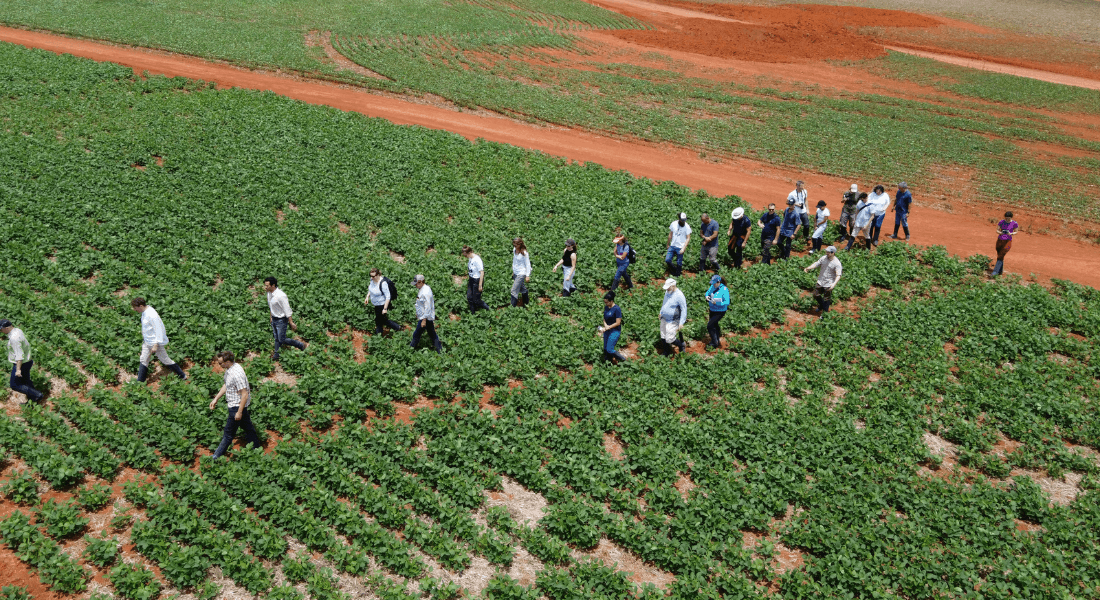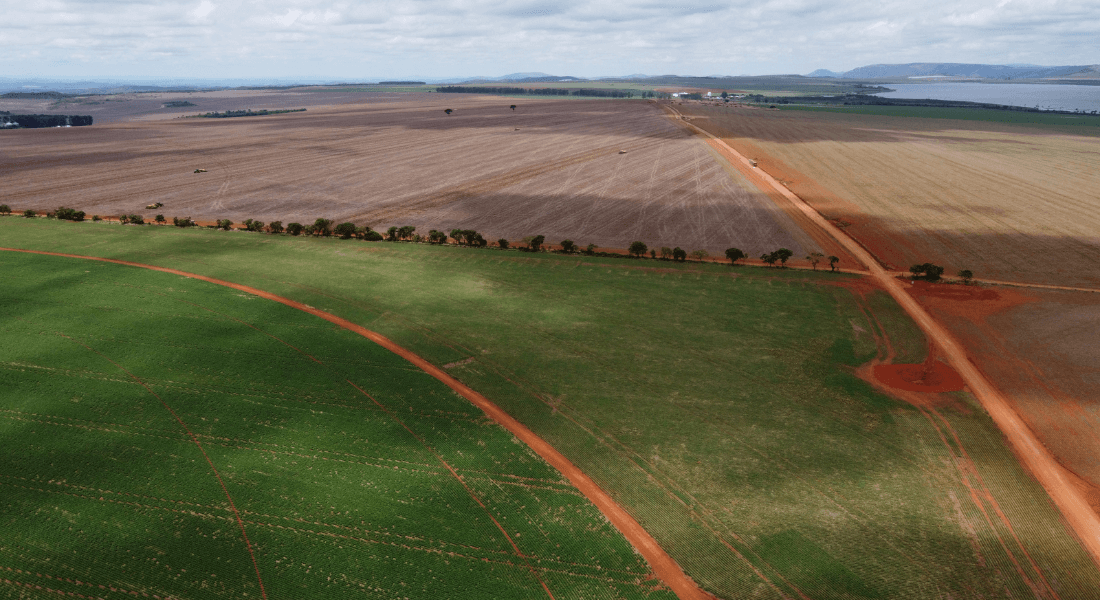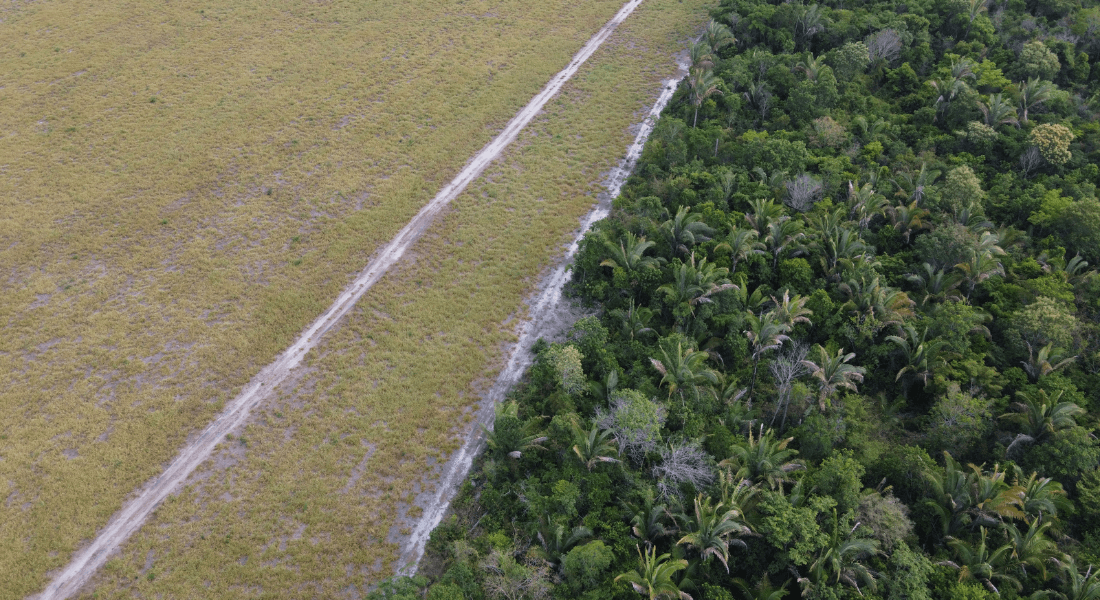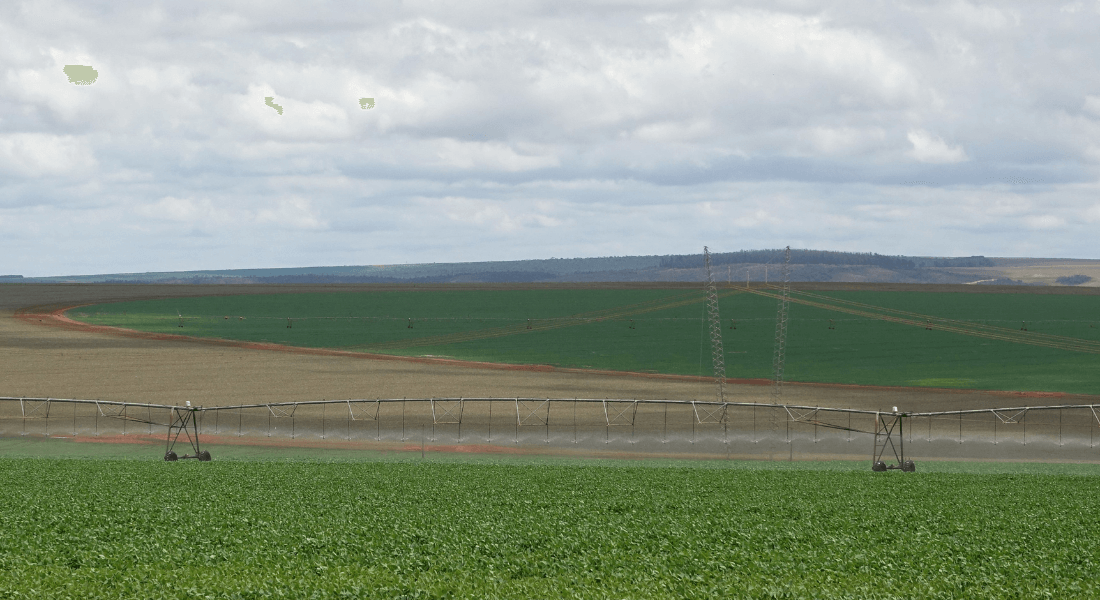New report on Danish soy imports and EU deforestation regulation
Researchers from the Department of Food and Resource Economics (IFRO) highlight key challenges in ensuring Denmark’s soy sourcing practices do not contribute to global deforestation and conversion of other natural ecosystems.

Denmark imports between 1.2 and 1.7 million tonnes of soybean meal annually, primarily for livestock feed. While much of this soy is certified under schemes like the Round Table on Responsible Soy (RTRS), the most commonly used certification model does not offer physical traceability.
“Soy imports without full traceability pose a challenge for legal compliance with the EU deforestation regulation – EUDR - and for companies aiming to meet climate and sustainability targets under frameworks like the Science Based Targets initiative (SBTi)”, says Aske Skovmand Bosselmann, Associate Professor and Section Head at IFRO.

The report, which is co-authored by Aske Skovmand Bosselmann, Research Assistant Olivia Frandsen and Senior Adviser Saraly Andrade de Sá, finds that only 6 percent of certified soy imports to Denmark are physically traceable.
The rest rely on credit-based systems or mass balance models, which offer limited transparency and do not in itself guarantee that the soy is deforestation- or conversion-free.
Using recent climate footprint studies and origin data for Danish soy imports, the authors show that sourcing soy from verified deforestation- and conversion-free (DCF) areas could reduce emissions from high-risk Brazilian imports by up to 54 percent.
However, Danish companies must navigate a fragmented landscape of standards, corporate schemes and public policies, many of which lack alignment on what constitutes responsible soy.

The report recommends a shift toward physical chain-of-custody models, improved transparency, and stronger alignment between corporate commitments and regulatory frameworks.
If the consumption-based footprint of Danish imports of soy and other commodities is not addressed through either climate targets or a benchmark aligned with the goals of the Paris Agreement, Denmark cannot consider itself a green frontrunner.
The whitepaper was commissioned by World Wildlife Fund for Nature Denmark (WWF) as a scientific consultancy by IFRO.

Contact
Aske Skovmand Bosselmann
Associate Professor and Head of Section for Production, Markets and Policy
Department of Food and Resource Economics (IFRO)
ab@ifro.ku.dk
Mathilde Merolli
Communications Officer
University of Copenhagen, FRB+
mathilde@adm.ku.dk
